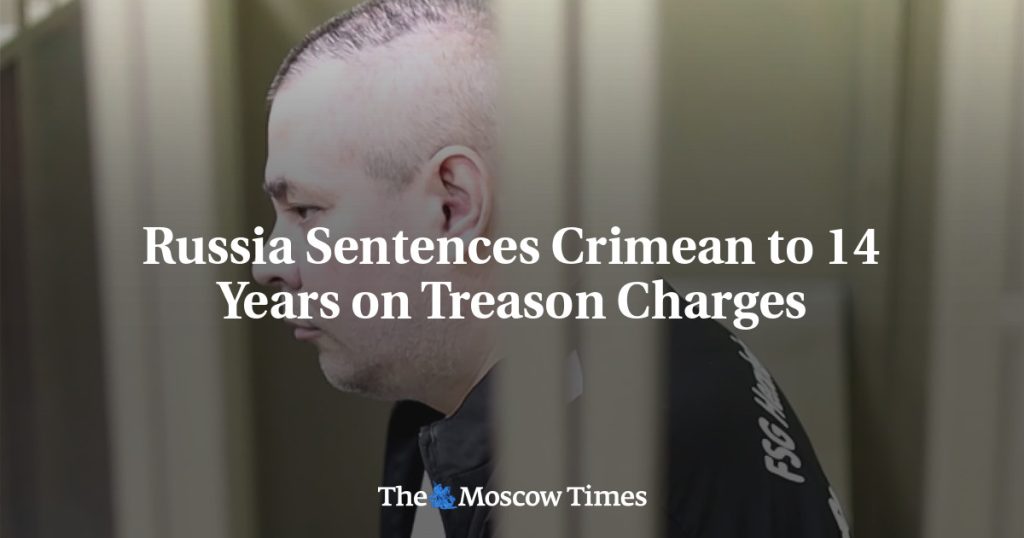Russia continues to crack down on individuals who are accused of aiding Ukraine or criticizing Russia’s military offensive in Crimea. On Friday, a Crimean man, Igor Kopyl, was sentenced to 14 years in a penal colony on treason charges. The FSB security service accused him of assisting Kyiv’s armed forces and preparing a terrorist attack. Kopyl, a former member of the Ukrainian navy, was accused of transferring information to Ukrainian authorities about Russian ships, air defense, and military equipment. The FSB also alleged that Kopyl received a parcel containing explosives intended for use in a terrorist act.
Since annexing Crimea from Ukraine in 2014, Russia has been involved in ongoing conflict with Ukraine, including attacks launched from the peninsula. Throughout Moscow’s offensive, Kyiv has targeted annexed Crimea, including the Black Sea Fleet. In a separate case, a street sweeper in the Urals named Gulnara Bakhareva is facing criminal charges for supporting a man imprisoned for an arson attack on an army draft office. Bakhareva was accused of justifying terrorism after writing “I am proud” under a birthday post for Alexei Nuriyev, who was sentenced to 19 years for throwing Molotov cocktails at an enlistment building during an anti-mobilization protest.
The sentencing of Igor Kopyl and the criminal charges against Gulnara Bakhareva are part of Russia’s ongoing crackdown on individuals deemed to be working against Russian interests, particularly in relation to Ukraine. The FSB has accused Kopyl of providing sensitive information to Ukrainian authorities and receiving explosives for a potential terrorist act. Meanwhile, Bakhareva is facing up to five years in prison for expressing support for a man imprisoned for an arson attack. Both cases highlight the severe consequences individuals face for opposing Russia’s military actions in Ukraine.
The sentencing of Igor Kopyl to 14 years in a penal colony for treason reflects Russia’s zero-tolerance approach towards individuals suspected of aiding Ukraine or criticizing its military operations. The FSB has accused Kopyl, a former member of the Ukrainian navy, of collaborating with Kyiv’s armed forces and transferring sensitive information about Russian military assets. The severity of Kopyl’s sentence underscores the harsh penalties imposed on individuals perceived as threats to Russia’s national security, particularly in the context of the ongoing conflict with Ukraine.
The case of Gulnara Bakhareva, who is facing criminal charges for supporting a man imprisoned for an arson attack on an army draft office, illustrates Russia’s broader crackdown on dissent and opposition to its military activities. Bakhareva’s alleged justification of terrorism through her social media post warrants potential imprisonment for up to five years. This case, along with Kopyl’s sentencing, demonstrates the lengths to which the Russian government is willing to go in order to suppress any form of dissent or criticism of its actions in Ukraine and Crimea.
As Russia’s military actions in Ukraine continue into their third year, the government is ramping up its efforts to silence dissent and punish individuals perceived as threatening its national security. The cases of Igor Kopyl and Gulnara Bakhareva are just two examples of the harsh measures being taken to suppress opposition and maintain control over the narrative surrounding Russia’s involvement in Crimea. With ongoing conflict and tensions persisting between Russia and Ukraine, the crackdown on individuals like Kopyl and Bakhareva is likely to continue as the Russian government seeks to maintain its grip on power and quash any form of dissent or criticism.


